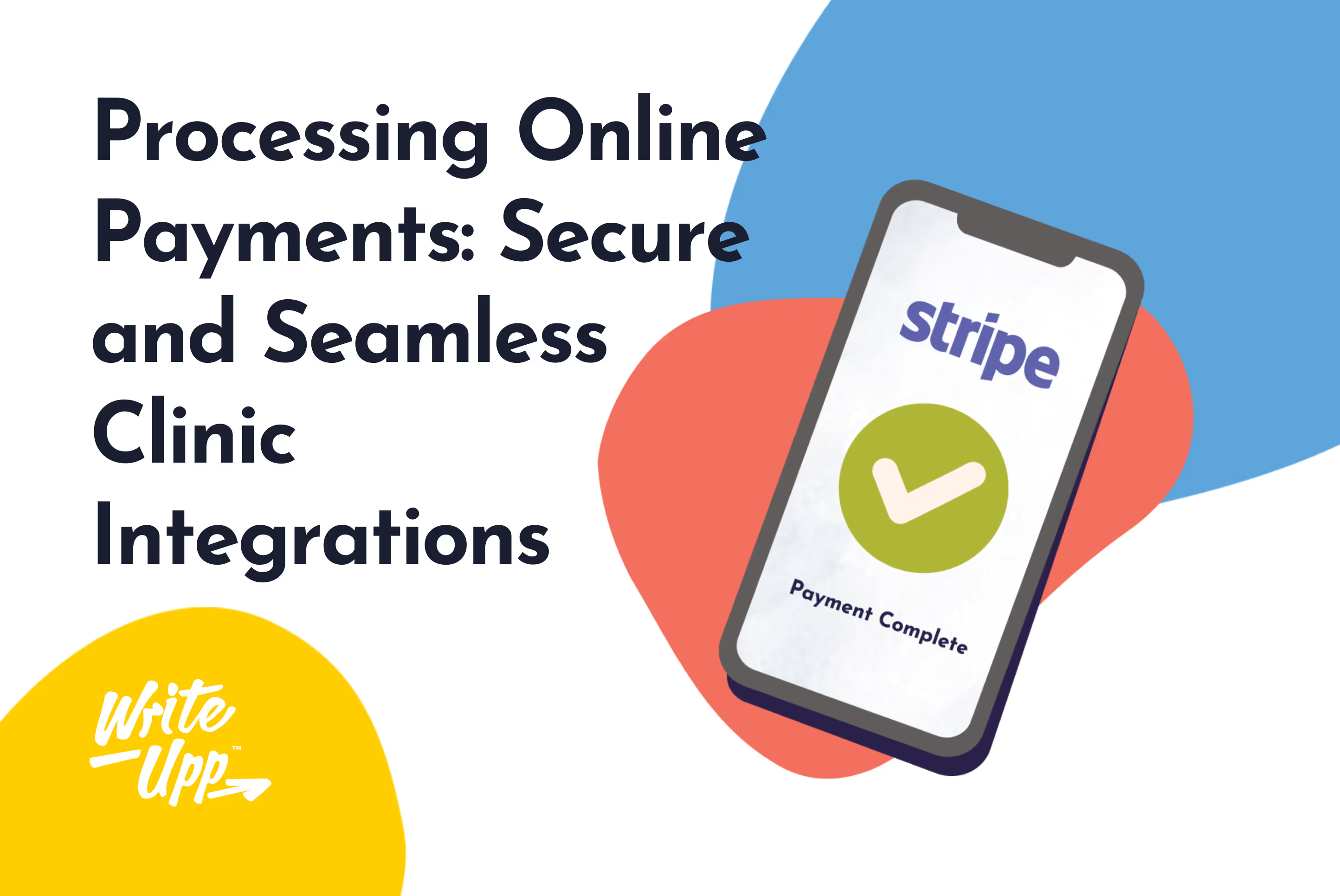Supervision is an essential part of professional development and growth. It provides a forum for discussion, reflection and development, enabling therapists to extend their professional knowledge and skills.
Supervision can be used in many ways depending on the individual workplace setting; it can focus on clinical practice and helping an individual become competent in a specific set of tasks, or more broadly, it can be used as an avenue for continuing professional development, where learning needs and personal growth are identified.
What is Clinical Supervision?
The clinical supervision process is a relationship between two clinicians, one taking the supervisor role and the other being supervised. The supervisor provides guidance, advice, input, reflection and feedback on healthcare performance standards and improvement strategies.
Through this relationship, the supervisor can help clarify decision-making and guidance in best practice procedures.
Ultimately supervision supports therapists in developing their knowledge base and giving them an opportunity to grow personally within their chosen field.
Why is Clinical Supervision Important for Therapists?
Clinical supervision helps therapists stay on the right track and provide the best care possible to their clients.
It allows you to acquire more knowledge and skills while refining your practice. It provides intellectual and professional growth opportunities, as you can explore new ideas and optimise old ones.
Furthermore, clinical supervision ensures that you practise safely and ethically and helps you learn how to respond effectively when facing real dilemmas.
Through supervisor feedback, therapists can also check their biases, allowing them to take emotion out of the equation and better serve the client’s interests instead of focusing on theirs alone.
Clinical supervision also enables you to track progress made by your clients - helping them observe areas where they may need additional guidance or further exploration - keeping all parties involved equally accountable throughout the therapy process.
The British Psychological Society's policy guidelines on clinical supervision state:
“All clinical psychologists, at all stages of their careers and in all work contexts, are expected to supervise their own work regularly. Such supervision is regarded as a core clinical activity to ensure the delivery of effective and high-quality services.
Clinical, research, educational, and managerial aspects of a clinical psychologist’s work should be supervised. However, the exact nature of the supervision will vary from individual to individual and over different work contexts.
No one model or supervision style will apply to all clinical psychologists in all settings and at all times in their careers. The DCP regards it as essential that supervision continues throughout a clinical psychologist’s career.
As much as it is regarded as essential to be supervised, clinical psychologists are similarly expected to provide supervision, particularly to trainees and newer members of the profession. This activity should be regarded as a core part of all clinical psychologists' work and will require training and development.
All supervision should be needs led. The minimum standard is 60–90 minutes for every 20 sessions worked. The Supervisor must be a Chartered Clinical Psychologist.”
How to Implement Clinical Supervision in Your Practice
There are some practicalities to consider when implementing clinical supervision, and the supervisor and supervisee must agree.
The NHS recommends the following
- the aim of clinical supervision and the process used
- the expectations from the supervisor and supervisee roles.
You will also need to consider how clinical supervision is implemented and delivered:
- face to face/virtual learning
- one-to-one/group, interprofessional model of learning
- structured framework and documentation
- pre-meeting planning, such as supervisee reflection
- content of supervision, what is appropriate/not appropriate to discuss
- recording the supervision and responsibility of the documentation
- confidentiality, which needs to be maintained at all times.
Is Clinical Supervision GDPR Compliant?
Supervisors are responsible for providing feedback and guidance on ethical dilemmas, such as when to breach confidentiality for a potentially dangerous client. This responsibility encompasses the therapists they supervise and the clients served by those clinicians.
GDPR and other privacy laws generally allow therapists to discuss treatment with clinical supervisors while adhering to specific requirements. For example, therapists should first disclose to their clients that they are in training and will discuss their treatment with a supervisor.
Such information may be included in the initial consent forms or “informed consent” documents. Furthermore, if confidential information is disclosed during consultation meetings between supervisors and supervised clinicians, this must happen privately to maintain client confidentiality.
Ultimately, these measures help preserve the trust of clients in such instances where details about treatments may need to be discussed between professional staff members.
How Do I Charge for Clinical Supervision?
This will vary, and it is up to you to set your own rates. As of 2023, the most common charges in psychotherapy are:
- Individual Clinical Supervision: £70 hour half session.
- Student Supervision: £35 per hour session.
You can set up clinical supervision appointment types and charges in your practice management system, making booking and invoice sessions easy.
The Five Models of Clinical Supervision
Clinical supervision can take many forms, but the five most common are traditional, cognitive behavioural, humanistic-existential, psychodynamic, and integrative:
Traditional Supervision
In this approach, trainees are given feedback on what they are doing right and what they need to improve on.
Typically, supervisors provide didactic guidance and feedback to supervisees. The supervisee should remain passive and receptive, absorbing the supervisor's knowledge.
This traditional model has been criticised for needing to be more directive and encouraging creativity and independent thinking in supervisees. However, it can be helpful in certain circumstances, such as when trainees struggle with a particular task.
Cognitive-Behavioural Supervision
Using this supervision model, trainees are assisted in identifying distorted thinking patterns and dysfunctional beliefs that may interfere with effective therapy.
Additionally, the supervisor teaches specific techniques for changing these beliefs and thoughts.
Humanistic-Existential Supervision
This model focuses on the trainee’s personal growth and development. The supervisor helps the trainee to become more aware of their values, beliefs, and biases.
This type of supervision can be beneficial in increasing self-awareness and developing therapeutic skills.
Psychodynamic Supervision
This approach focuses on changing problematic behaviours, feelings, and thoughts by discovering their unconscious meanings and motivations.
Therapists and patients work closely together in psychoanalytically oriented therapies. The therapeutic relationship allows patients to gain a deeper understanding of themselves.
Sigmund Freud is closely associated with psychoanalysis, but it has evolved since then.
Integrative Supervision
Integrative supervision blends multiple evidence-based therapy methods and relationship stances to meet the client's needs while tailoring disparate supervision methods to the supervisee's needs.
Getting the Most Out of Clinical Supervision
Supervision affords therapists a chance to discuss their feelings about their cases.
To get the most out of clinical supervision:
- Choose someone with supervisory experience and who is willing to take a proactive role. A supervisor who shares your values and is experienced in treating the issues you hope to specialise in is also an asset.
- Talk about your supervisory relationship. How often will you meet? What will you discuss?
- Be proactive in your relationship with your clinical supervisor. Bring specific questions and issues to your meetings.
- Don’t be defensive when your supervisor gives you feedback. Feedback is the most valuable aspect of clinical supervision and one of the only ways you can grow as a therapist.
- Understand the importance of mentorship. A 2013 study found that counsellors rated their supervisor’s mentorship, not their education or training, as the most important factor in job performance. Working with someone willing to mentor you actively may offer the most value in a safe space.
How Do I Keep a Record of My Clinical Supervision Sessions?
During your clinical supervision session, you must take notes in your practice management software to avoid forgetting what you learned.
Keep all your information together in WriteUpp by going to Create -> Note, then jotting your thoughts, ideas and outcomes. You could even create a template to prompt you on what information you want to remember every time you attend a clinical supervision session.
Once your note is finished, simply link it to the clinical supervision appointment in your diary so that you can access it easily and know exactly which session your notes refer to.
One of the core requirements of clinical supervision is that you keep a record that is reflective and evaluative.
Reflection allows you to identify and appreciate positive experiences and better identify ways to improve your practice and service delivery. It can also be helpful when you have had more challenging experiences, helping you to process and learn from them.
Reflective notes should be brief but reflect on the relevant learning and its impact on your practice.
Each reflective note should include the following four elements:
- Why did I choose this activity for my supervision session?
- What did I learn from this?
- What am I going to do to apply this learning in my work?
- What will I do to develop this learning and/or meet further any gaps in my knowledge, skills or understanding?
The easiest way to remember to reflect on these elements is to use our CPD Reflective Learning template in WriteUpp.
To use this, head to Settings -> Assessments and add this template to your favourites list. You can use this every time you attend a supervision or training session.
These will be stored securely against your own record, which you can export if necessary.
If you’d like to use WriteUpp to manage your clinical supervision sessions and all your practice management requirements, take out a FREE 30-day trial.
We don’t need your credit card details, and you are not obligated to subscribe at the end of your trial.
If you have any questions or want to chat about what an integrated practice management solution could do for you and your practice, just grab us for a live chat.
The button is just there in the bottom right corner of your screen.



Join over 50,000 clinicians that we've helped using WriteUpp
Start my free trial






